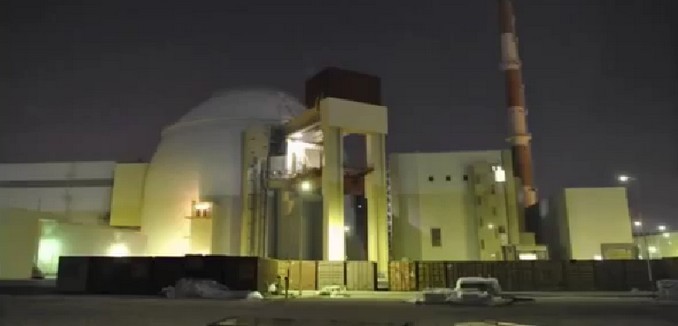Iran’s announced construction of two light-water reactors does not violate the Joint Plan of Action (JPOA) signed between Iran and the P5+1 nations in November 2013, a State Department official told the Washington Free Beacon today.
“We are aware of the announcement and are reviewing the details,” said the official, who was not authorized to speak on record. However, “in general, the construction of light water nuclear reactors is not prohibited by U.N. Security Council resolutions, nor does it violate the JPOA,” the official said. …
“We have been clear in saying that the purpose of the negotiations with Iran is to ensure that Iran’s nuclear program remains exclusively for civilian, peaceful purposes,” the official said. “The talks that we have been engaged in for months involve a specific set of issues relative to closing off all possible pathways to Iran acquiring a nuclear bomb. That remains our focus.”
The Obama administration has maintained that one of the JPOA’s goals was to “stop the advance of [Iran’s] nuclear program.”
The Free Beacon quoted a “senior foreign policy hand” who questioned the timing of the announcement, saying that Iranian President Hassan Rouhani “picked the day when negotiations were starting again and his declaration is the literal definition of building new nuclear technology.”
Robert Einhorn, a nuclear proliferation expert at the Brookings Institution, noted yesterday that building more reactors gives Iran a pretext for maintaining its enrichment program:
Iran’s negotiating position is largely driven by its declared goal of achieving an industrial-scale enrichment capacity (more than ten times its current operational capacity), which Iranians claim they need as soon as 2021 in order to produce fuel for the Russian-supplied Bushehr nuclear power reactor. In support of that goal, Iran has opposed all but token reductions in its current centrifuge capacity, and it has called for a short-duration agreement (five to seven years) that would allow it to ramp up its enrichment program to industrial scale at a relatively early date.
Iran’s uranium enrichment, in violation of its obligations under the Nuclear Non-Proliferation Treaty (NPT), spurred six United Nations Security Council resolutions—three of them unanimous—imposing sanctions on Iran until it comes into compliance. Iran’s non-compliance with the treaty has raised suspicions that it is seeking to enrich uranium for a nuclear weapon.
In How a Weak Iran Deal Makes Us All Less Safe and War More Likely, which was published in the January 2014 issue of The Tower Magazine, Emanuele Ottolenghi observed:
Similar to the sanctions easing, the interim deal has fatally undermined the NPT by watering down Iran’s compliance obligations, undercutting the IAEA’s authority in matters of verification, and ignoring the military dimensions of the program documented by the Agency, which are all at the heart of the dispute. In fact, if a final agreement were to emerge that fails to address the flaws present in the interim deal, including continued enrichment work, Iran would be able to break out under the cover of the NPT.
[Photo: AdvancedYT / YouTube ]




